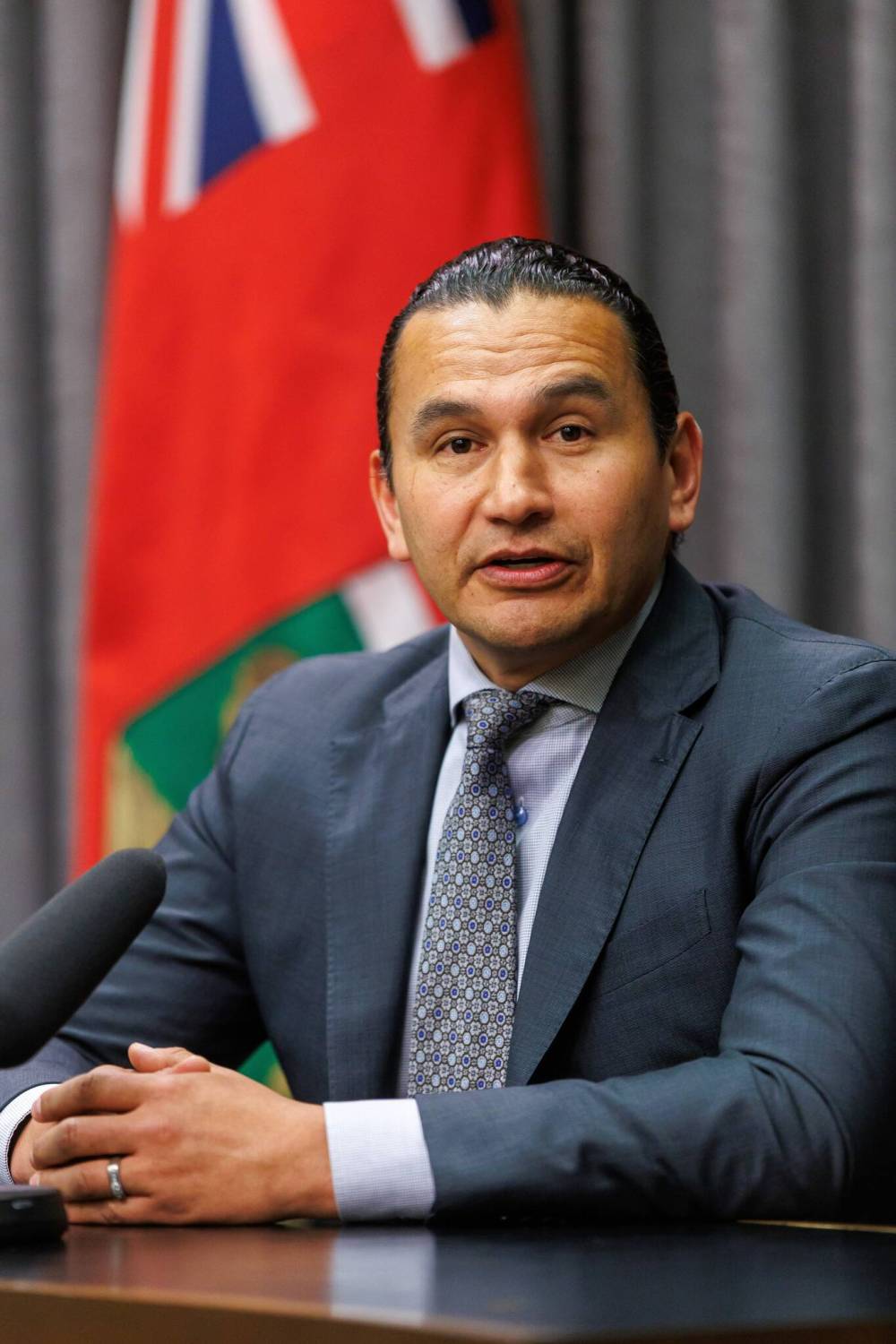Closing the door on election falsehoods
Advertisement
Read this article for free:
or
Already have an account? Log in here »
To continue reading, please subscribe:
Monthly Digital Subscription
$0 for the first 4 weeks*
- Enjoy unlimited reading on winnipegfreepress.com
- Read the E-Edition, our digital replica newspaper
- Access News Break, our award-winning app
- Play interactive puzzles
*No charge for 4 weeks then price increases to the regular rate of $19.00 plus GST every four weeks. Offer available to new and qualified returning subscribers only. Cancel any time.
Monthly Digital Subscription
$4.75/week*
- Enjoy unlimited reading on winnipegfreepress.com
- Read the E-Edition, our digital replica newspaper
- Access News Break, our award-winning app
- Play interactive puzzles
*Billed as $19 plus GST every four weeks. Cancel any time.
To continue reading, please subscribe:
Add Free Press access to your Brandon Sun subscription for only an additional
$1 for the first 4 weeks*
*Your next subscription payment will increase by $1.00 and you will be charged $16.99 plus GST for four weeks. After four weeks, your payment will increase to $23.99 plus GST every four weeks.
Read unlimited articles for free today:
or
Already have an account? Log in here »
Hey there, time traveller!
This article was published 22/03/2025 (231 days ago), so information in it may no longer be current.
Provincial legislation to crack down on disinformation is well-intended and might be of absolute necessity during an era in which consensus reality is in trouble.
But the pertinent question is: can it work?
The Manitoba government has put forward a bill adding on to pre-existing law regarding the dissemination of false information during an election campaign. The Elections Act already has rules against disseminating false information about candidates and impersonating election officials.

MIKE DEAL / FREE PRESS
Manitoba Premier Wab Kinew
But this is the time of social media and artificial intelligence, and between the two, a lie can run around the world before the truth has even looked at its shoes, let alone put them on. More must be done.
Chief electoral officer Shipra Verma has called for a ban on objectively false information about election officials and electoral processes, and equipment used in elections, in addition to simply banning lies about candidates. That is an important point to address, as those seeking to undermine the validity of democratic elections have, in the past five years or so, repeatedly tried to undermine the process itself, not just candidates. The province’s bill also makes provisions against the use of deepfaked images.
The penalty for refusing to comply with these rules is steep — $20,000 per day. That’s certainly not a cost an unscrupulous campaign would want to deal with, and would be backbreaking for an unaffiliated individual to be caught in.
But that brings us to the problem: is Elections Manitoba, or any other authority, capable of following through on what are sure to be many violations?
The Manitoba government’s bill grants the commissioner of elections the ability to act quickly when violations are spotted, but they aren’t the only people who would be involved in tracking down someone violating the law. Most of the falsehoods which may be disseminated about an election, or a candidate in it, are likely to be spread online. Many users of social media platforms either have limited personal information on their profiles, or profiles which cannot be viewed by the public, or are completely anonymous. If an anonymous user on X posts that the next provincial election is rigged, discerning who that person is will take so long that any damage made by the claim will long have been done when and if the user is ever tracked down.
It is, to put it lightly, not easy to corral the internet’s myriad liars. Campaigns are likely to mind their manners a little better under such a law. But the sheer amount of disinformation being spread, and the relative unlikelihood that any one user will be caught and hunted down specifically, will make it akin to laws against, say, internet piracy. Plenty of people do it, but few have been caught. A steep financial penalty is unlikely to stop people from playing the odds.
Further, as the Free Press reported earlier this month, the province has taken pains to make sure the bill notes a difference between information that is simply wrong, from information that is deliberately false. That is an entirely different nit to pick for anyone trying to levy these fines: how does one prove that someone spread a lie knowing it to be a lie? It would require some pretty hard evidence.
There is a very strong argument to be made that disinformation is a blight on our political ecosystem, and something should be done about it, but it’s not clear whether this law is a step in the right direction.
Paul Thomas, professor emeritus of political studies at the University of Manitoba (and a regular contributor to the Free Press) has said the bill represents “uncharted waters” and that there will be a trial-and-error process when it comes to where to apply that law.
That’s true, but a bigger problem to solve is figuring out how to enforce it effectively in the first place.

